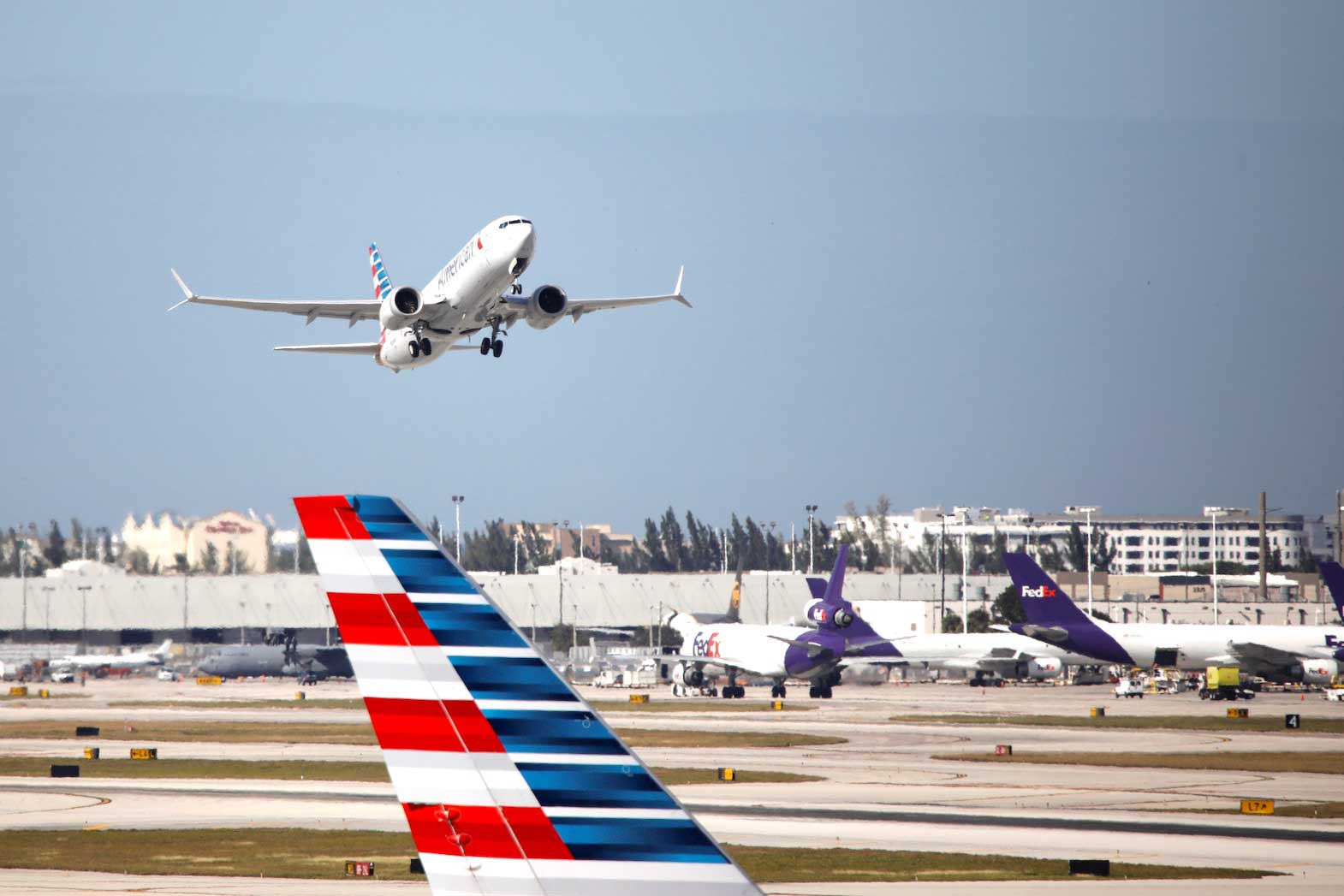Safety concerns rise as planes return to the sky

A few minutes every morning is all you need.
Stay up to date on the world's Headlines and Human Stories. It's fun, it's factual, it's fluff-free.
Aviation experts believe that the return of passenger jets could have problematic or even dangerous consequences.
As Americans traveled home for the holidays in the highest numbers seen in airports since the pandemic started, it appears that the airline industry may finally be starting to pull out of the unprecedented slump that 2020 has found it in.
The numbers that have been released so far still aren’t anything resembling past holiday travel, with the week leading up to Christmas seeing fewer than eight million passengers going through TSA checkpoints in the United States, barely 40% of that from the same period last year.
Nevertheless, the increase in travelers in recent weeks has been taken as positive news for an industry that has had little of that this year. But the return of passenger jets to the skies brings with it a number of other challenges and could, according to aviation experts, have problematic or even dangerous consequences.
Grounded
The impact of COVID-19 on the global travel industry was largely unprecedented. With a number of countries enacting travel bans and many passengers afraid to fly due to the pandemic, air travel came to a screeching halt. By mid-April, more than 16,000 passenger jets worldwide were grounded and the number of planes in active service was the lowest it had been in 26 years.
This mass-grounding of aircraft presented one significant problem for the world’s airline industries – where could all these grounded planes be safely stored?
Aircraft need specific conditions to be stored long-term. According to Boeing’s guide on the subject, “Parking creates the risk that an airplane may not be properly protected or that system functionality may not be properly restored.” The guide goes on to say that “The procedures established to preserve an airplane during parking and later restore it to in-service condition are extensive and lengthy, but necessary to ensure airworthiness.”
Parked planes can experience damage due to a number of factors, including heat, humidity, ice, hail and wind. Additionally, insects and birds often try to nest in parked planes.
Precautions taken to protect stored aircraft include topping off fuel tanks to prevent the planes from rocking in the wind and rotating the wheels several times a month to prevent rusting.
Cleared for liftoff?
According to the TSA, the three busiest air travel days since the end of March all had around 1.2 million travelers. Two of those came in the week leading up to Christmas, with the third coming in the week before Thanksgiving.
This small surge allowed airlines some solace after a year that has cost tens of thousands of airline employees their jobs and billions in losses to the industry itself.
However, aviation experts have expressed concern over the sudden return of so many planes to the skies after nearly nine months of inactivity.
Maintenance of aircraft has been a major concern and inspections have found insects nesting in key components of aircraft, resulting in major issues.
There has also been the fear that returning pilots might be out of practice.
“Flying an aircraft can be quite technical,” Greg Waldron, a managing editor of the aviation magazine FlightGlobal, told the BBC. “If you haven’t been doing it for a while, it’s certainly not second nature like riding a bike.”
The last several months have already seen an increase in the number of unstabilized approaches, which can result in rough landings, runway overshoots and, in severe cases, crashes. More than a hundred people have died this year from crashes caused by unstabilized approaches, including passengers on a Pakistan International Airlines flight back in May and an Air India Express flight in August.
Waldron says that airlines are aware of the issue and that many have booked extra flight-simulator time for their pilots.
These fears have come in addition to those of travelers flying on the Boeing 737 Max, which, after having been grounded for more than a year after over 300 people died in crashes aboard its planes, was cleared in November by the Federal Aviation Administration (FAA), allowing flights to resume in December.
With the airline industry as eager to bid farewell to 2020 as anyone, officials hope that safety concerns due to the record number of grounded flights aren’t just one more thing they have to worry about going into the new year.
Have a tip or story? Get in touch with our reporters at tips@themilsource.com




Comments ()